News
Hybrid drinks add sparkle to a struggling beverage market
21 Oct 2019Consumers love to try new beverages, and a recent trend aims to straddle categories with drinks like tea lattes, carbonated juices, and fruit smoothies with plant milk.
Perhaps unsurprisingly, Coca-Cola is a leader in the hybrid beverage area. In March 2019, it released a smoothie-kombucha drink in the United States (Smoobucha), and its portfolio also includes more established hybrids, like Vitaminwater and Core Power, a dairy-based range of sports recovery drinks. PepsiCo has released its own hybrid beverages, including an oat-based breakfast drink under its Quaker brand in Latin America, and Tropolis, a squeezable liquid fruit drink/snack for kids in the United States.

According to market research organisation Mintel, about two-thirds of consumers have tried a hybrid beverage, the most popular being nutrient-enriched water and carbonated juice. But beverage companies have been exploring many different options in an effort to add some fizz to a struggling market. Sales of carbonated soft drinks, juice and milk are all stagnating or in decline, so manufacturers are looking to boost these categories with trendy ingredients, including chia seeds, cold brewed coffee, pre- and probiotics and matcha green tea.
Ingredients companies are already poised with portfolios of such ingredients, many of which are used in natural energy drinks that cross categories with various botanicals, electrolytes or other functional ingredients. Naturex, for instance, provides caffeine-free ingredients like maca root, ginger and ginseng for use in energy drinks, and Dutch supplier Berrico is among those providing goji berries in juice form or extracts, another popular ingredient for manufacturers seeking natural options.
Energy drinks represent just 1% of soft drink sales, according to trade association Energy Drinks Europe, but could be an interesting niche for hybrid drinks, especially as consumers increasingly are seeking out natural, ‘clean’ energy-boosting beverages free from synthetic caffeine and sugar. Natural ingredients, juices, coffee and tea could be promising starting points for new hybrid drinks. In a 2015 survey, 41% of German consumers said they would pay more for drinks made with only natural energy boosters, and market research from Mintel suggests that a majority of consumers across Europe would like to see energy drinks made with natural colours and flavours.
Meanwhile, beverage companies have taken note of the trend toward plant-based dairy alternatives, and are looking for ways to capitalise on that trend beyond plain and flavoured milks. Starbucks is among the big names to have created a plant milk hybrid drink, with a coffee-smoothie mash-up launched in the United States in 2018, based on either coconut or almond milk with added plant proteins and cold brew coffee.
With declining juice sales in Europe and elsewhere, hybrid juice drinks could breathe new life into the category. They are the biggest segment of the hybrid beverage sales, accounting for 47% of the market, according to Mintel. Antioxidants, electrolytes, protein and energy-boosting ingredients are among the most popular additions, especially among younger consumers who are seeking healthier options with less sugar and fewer artificial ingredients than traditional soft drinks.
Related news
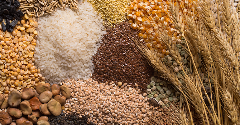
Sustainable grains present a healthy growth opportunity
3 Oct 2024
Food insights provider SPINS unveils the latest trends in the sustainable grains field, exploring how seven leading grains show healthy growth despite challenges in the global value chain.
Read more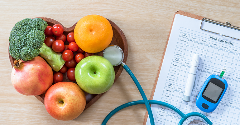
Will we see a wave of NPD that focuses on insulin management?
1 Oct 2024
As a new study finds protein and fats can help manage insulin, food manufacturers are building on emerging GLP-1 platforms and supporting nutritional guidance.
Read more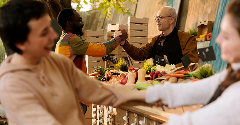
New environmental food scoring standards emerge
30 Sep 2024
EIT Food and Foundation Earth collaborate to launch environmental food scoring for products entering the global supply chain.
Read more
Africa progresses with food transformation strategy
19 Sep 2024
Large-scale efforts are underway to drastically change the African food sector with a $61 billion (€55 bn) set of proposed transformation plans to be implemented across forty countries. Yet there are concerns that this initiative severely jeopardises s...
Read more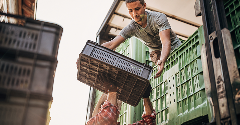
European Commission releases new supply chain recommendations
6 Sep 2024
The European Union’s (EU) legislative arm publishes its latest guidance on protecting the market’s food supply chain against current and future crises.
Read more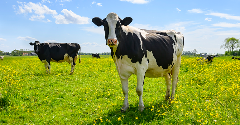
Tesco trials methane mitigation supplement for dairy cattle
5 Sep 2024
Tesco is trialing a methane-reducing feed supplement for one of its key UK dairy farms, sustainable UK milk producer Grosvenor Farms.
Read more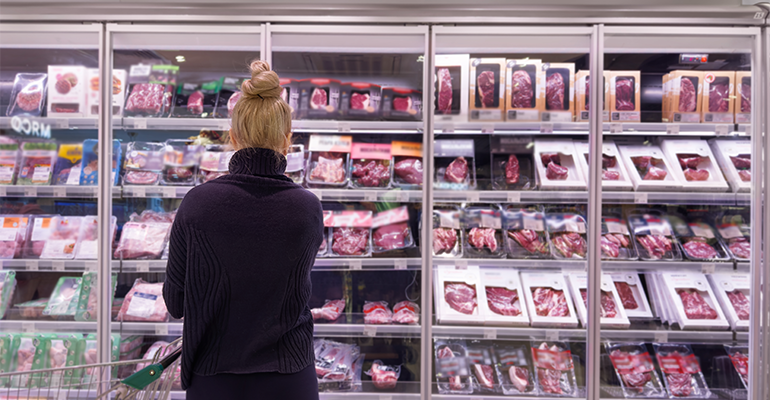
European consumers want more freedom to choose biotech-based food
3 Sep 2024
Survey findings point to growing levels of interest in cultivated meat as European consumers say they want the freedom to choose the lab-based products.
Read more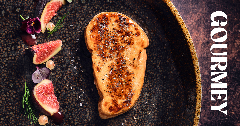
Will ‘foie gras’ become the EU’s first approved cultivated meat?
20 Aug 2024
French startup Gourmey has submitted its cultivated foie gras for approval in the European Union (EU), signalling the first application of its kind in the region.
Read more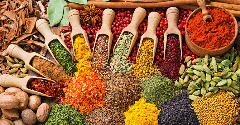
Europe gravitates to African spices
19 Aug 2024
Shipping delays, limited production output and climate change impact Europe’s spice supply, creating opportunities for African brands to enter the captive market.
Read more
Paris Olympics: Food and beverage brands champion health, fun, and sustainability
5 Aug 2024
Food and beverage brands are aligning with the Paris Olympics 2024 Food Vision, which emphasises sustainability, local sourcing, and plant-based diets.
Read more
